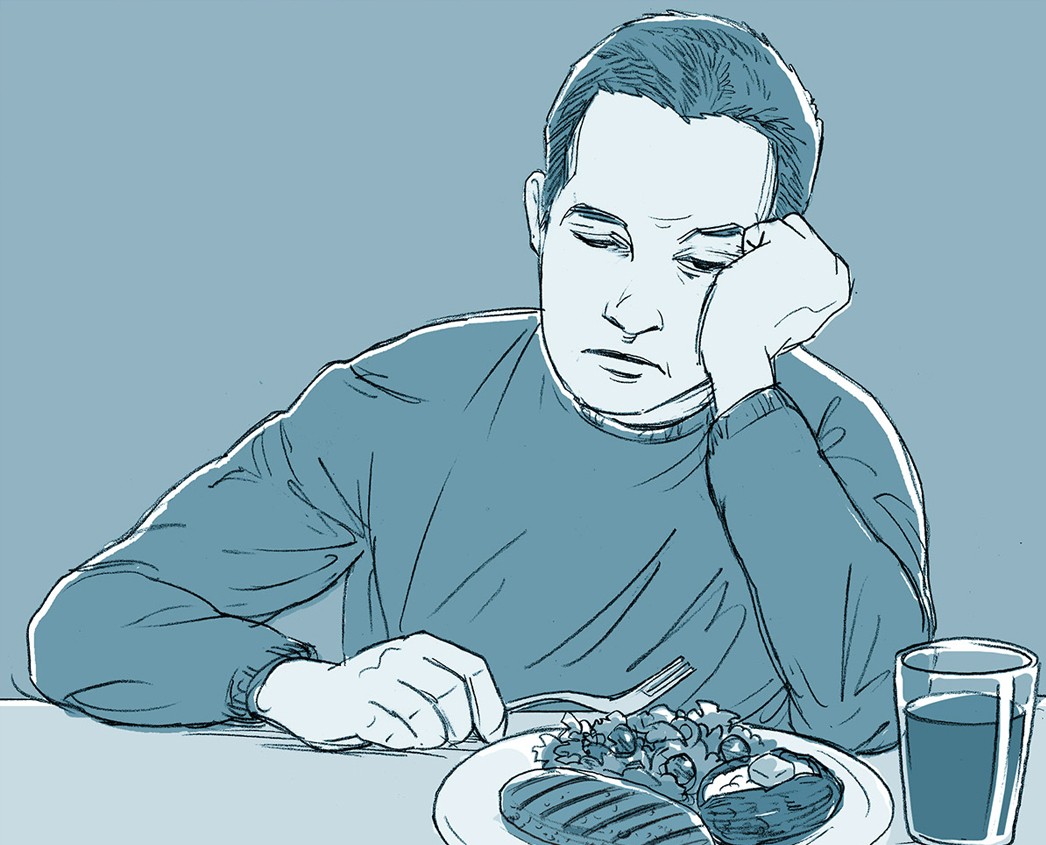Revitalizing Digestion: TCM Insights on Loss of Appetite and Holistic Solutions
In Traditional Chinese Medicine (TCM), loss of appetite is viewed as a symptom of imbalances in the body's vital energy (Qi) and organ systems. Here's a detailed overview of loss of appetite in TCM, covering causes, symptoms, syndromes, diagnosis, treatment, dietary recommendations, cautions, and more:
Causes of Loss of Appetite in TCM:
- Spleen Qi Deficiency:
- Impaired function of the spleen, affecting the digestive system.
- Weakness in the spleen's ability to transform and transport nutrients.
- Stomach Cold:
- Cold conditions affecting the stomach, leading to a decreased appetite.
- Exposure to cold foods or environments may contribute to this pattern.
- Dampness in the Spleen:
- Accumulation of dampness affecting the digestive organs.
- Poor diet and excessive intake of damp-producing foods may contribute.
In Person With Heshoutang Natural Health Members
With Heshoutang Natural Health Online Members
Fill Out the Questionnaire by yourself
Symptoms of Loss of Appetite in TCM:
- Weak Digestion:
- Difficulty digesting food, often resulting in bloating or indigestion.
- Feeling of fullness even with small amounts of food.
- Lack of Interest in Eating:
- Reduced desire or interest in consuming meals.
- Aversion to certain foods may be present.
- Fatigue and Weakness:
- Lack of nourishment affecting overall energy levels.
- Fatigue and weakness may be more pronounced.
Syndromes Associated with Loss of Appetite:
- Spleen Qi Deficiency Syndrome:
- Symptoms may include fatigue, loose stools, and a pale complexion.
- Loss of appetite is often accompanied by a feeling of heaviness in the limbs.
- Stomach Cold Syndrome:
- Symptoms may include a preference for warm foods, aversion to cold, and cold limbs.
- Loss of appetite is aggravated by exposure to cold environments.
- Dampness in the Spleen Syndrome:
- Symptoms may include bloating, a heavy sensation in the body, and a sticky tongue coating.
- Loss of appetite is often associated with feelings of lethargy.
Diagnosis in TCM:
- Pulse and Tongue Diagnosis:
- A weak or slippery pulse may indicate Spleen Qi Deficiency or Dampness in the Spleen.
- Examination of the tongue coating and color provides insights into the overall digestive condition.
- Observation and Inquiry:
- Assessing the individual's overall energy levels, sleep patterns, and emotional state.
- Inquiring about dietary habits, preferences, and any other relevant lifestyle factors.
- Palpation of Abdominal Areas:
- Detecting areas of tenderness or bloating in the abdominal region.
TCM Treatment Approaches:
- Acupuncture:
- Stimulating specific points to regulate Qi, strengthen the spleen, and promote digestive function.
- Common points include Stomach 36 (Zusanli) and Spleen 6 (Sanyinjiao).
- Herbal Medicine:
- Prescribing herbal formulas to tonify the spleen, dispel dampness, or warm the stomach.
- Common herbs include Ginseng, Atractylodes, and Ginger.
- Moxibustion:
- Applying heat to specific points to warm and invigorate the spleen and stomach.
- Particularly beneficial in cases of Spleen Qi Deficiency.
Diet Helps:
- Warm and Nourishing Foods:
- Emphasize soups, stews, and warm, cooked meals to support digestion.
- Include foods like ginger, cinnamon, and garlic to warm the digestive system.
- Avoid Cold and Damp-Producing Foods:
- Minimize the intake of cold and raw foods, dairy, and greasy or heavy foods.
- Opt for easily digestible options.
- Small, Frequent Meals:
- Eating smaller meals throughout the day rather than large, heavy meals.
- Snacking on nutritious options can help maintain energy levels.
Cautions:
- Avoiding Overeating:
- While addressing loss of appetite, be mindful not to overeat.
- Gradually increase portion sizes based on comfort and appetite improvement.
- Limiting Damp-Producing Foods:
- Reduce the consumption of foods that may contribute to dampness, such as sweets and dairy.
- Balance the diet with a variety of fresh, whole foods.
Lifestyle Recommendations:
- Stress Management:
- Incorporate stress-reducing practices like meditation or gentle exercises.
- Emotional stress can impact digestion, so fostering a calm environment is essential.
- Regular Exercise:
- Engage in moderate exercise to promote Qi circulation and overall well-being.
- Physical activity can stimulate appetite and enhance digestive function.
- Adequate Rest:
- Ensure sufficient rest to support the body's healing processes.
- A consistent sleep schedule contributes to overall health.
It's crucial to consult with a qualified TCM practitioner for an individualized assessment and treatment plan. TCM treatments aim to address the root causes of loss of appetite, restore overall balance in the body's energy, and promote optimal digestive function.
When you subscribe to the blog, we will send you an e-mail when there are new updates on the site so you wouldn't miss them.














Comments